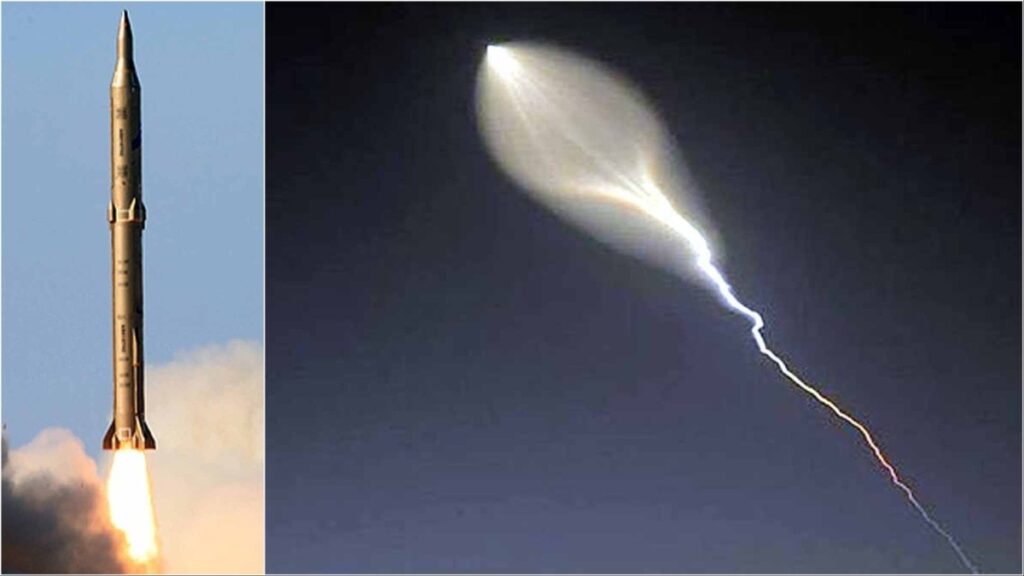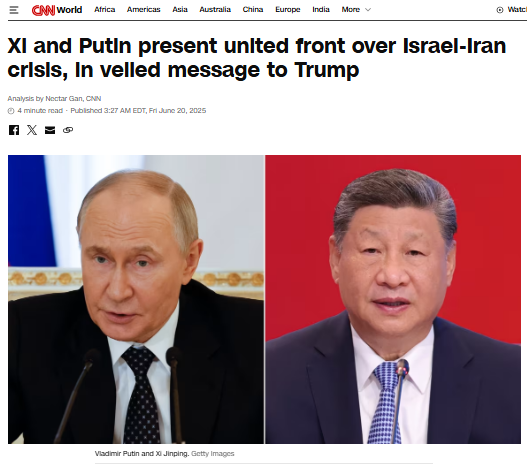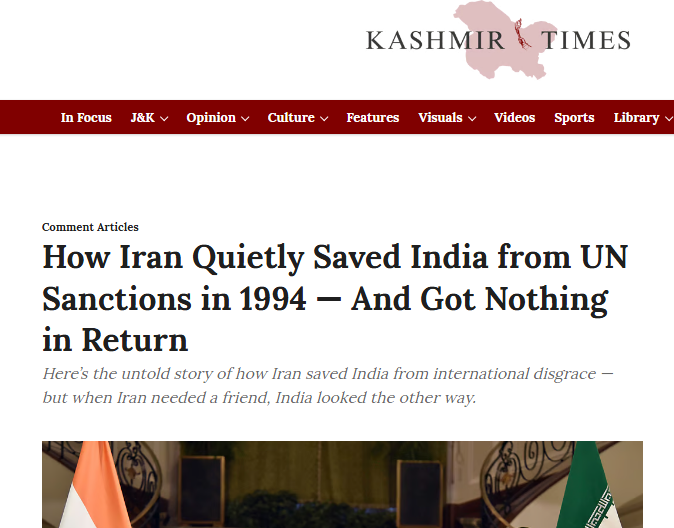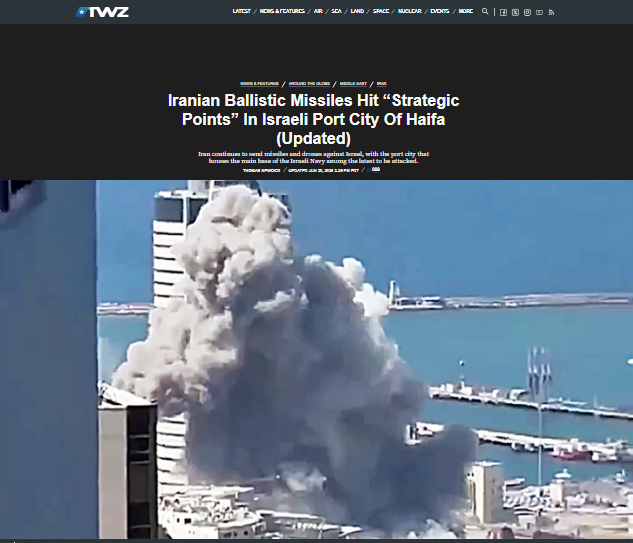The Iran-Israel conflict, intensifying in 2025, has plunged the Middle East into chaos, exposing Israel’s military vulnerabilities and Iran’s formidable resilience. Israel’s aggressive strikes on Iranian nuclear facilities, driven by unproven claims of a weapons programme, have triggered a fierce retaliation that has left Israeli cities like Haifa and Tel Aviv in ruins. Let’s delve into the conflict’s developments, Iran’s strategic upper hand, the faltering responses of Israel and its allies, India’s diplomatic missteps, and the broader global implications, drawing on recent reports.
Israel’s Miscalculation and Iran’s Retaliation
Israel’s decision to launch preemptive strikes on Iran’s nuclear sites, including Natanz, Isfahan, and Fordow, was rooted in its long-standing narrative—unsupported by evidence—that Iran is developing nuclear weapons. Since 1998, Israeli leaders, particularly Prime Minister Benjamin Netanyahu, have repeatedly claimed Iran is weeks away from building a bomb, a claim debunked by the International Atomic Energy Agency (IAEA). In 2025, IAEA Director Rafael Grossi reiterated that Iran’s nuclear programme has been dormant since 2009, focused solely on energy production. Israel’s attacks, justified as “self-defence,” violated international law, as confirmed by the United Nations and China, and have backfired spectacularly.

Iran’s response has been devastating. Utilising its Sejil missile, developed under the secretive “Jalzala” project since 1990, Iran has overwhelmed Israel’s defence systems. The Sejil, with a 2,000–2,500-kilometre range and the ability to carry 600–700 kilograms of explosives, can change trajectory mid-flight, rendering Israel’s Iron Dome, Arrow, and U.S.-supplied THAAD systems ineffective. Haifa, a key economic hub, has been reduced to rubble, with its port—partially owned by Indian businessman Gautam Adani—severely damaged. Tel Aviv’s tech district, including Microsoft’s offices, has been hit, causing economic losses exceeding $1.5 billion. Iran’s use of cluster bombs, banned under a 2008 international agreement, has amplified the destruction, though unverified reports suggest Israel may also be deploying similar weapons, further escalating the humanitarian crisis.
Iran’s restraint in avoiding Jerusalem, due to its religious significance as home to the Al-Aqsa Mosque, highlights its strategic precision. Meanwhile, Israel’s failure to penetrate Fordow, protected by mountains and buried half a mile underground, underscores its intelligence and military shortcomings. The collapse of Israel’s once-vaunted defence systems has left its citizens in panic, with air raid sirens and mass evacuations becoming daily realities.
Hezbollah’s Threat and Regional Dynamics

Iran’s regional allies, particularly Hezbollah, have tilted the conflict further against Israel. Hezbollah, armed with an estimated 150,000 rockets and missiles, poses a severe threat to northern Israel. On 20 June 2025, its deputy leader, Naim Qassem, declared unwavering support for Iran, stating, “We are not neutral. We stand with Iran with full strength.” This has forced Israel to divert resources to its northern border, stretching its military thin. Hezbollah’s arsenal, backed by Iranian training and technology, could unleash chaos if fully deployed, with analysts warning of a potential “night of devastation” for Israel.
Other groups, such as the Houthis, have been indirectly supported by Iran, though their role remains limited. Iran’s ability to mobilise these proxies has exposed Israel’s isolation in the region, as its aggressive policies have alienated even former allies. The conflict has also disrupted global trade, with Haifa’s port closure affecting supply chains and raising oil prices, impacting countries like India that rely on Middle Eastern stability.
Global Powers and Diplomatic Failures
The conflict has drawn in major powers, with the United States, Russia, and China shaping its trajectory. The U.S., Israel’s primary backer, has faltered under President Donald Trump’s erratic leadership. Initially promising decisive action, Trump backtracked on 20 June 2025, announcing a two-week delay in deciding on military involvement. Reports indicate the U.S. has withdrawn 37 of 40 aircraft from its Al Udeid Air Base in Qatar, fearing Iranian retaliation. Satellite imagery from Planet Labs PBC, analysed between 5–19 June 2025, confirms this retreat, with only three planes remaining. Trump’s public dismissal of Netanyahu’s capabilities during a Washington visit—stating Israel cannot neutralise Fordow—has humiliated Israel, exposing cracks in their alliance.

Russia and China have firmly supported Iran. Russian President Vladimir Putin, speaking at the St. Petersburg International Economic Forum, vowed to continue cooperation with Iran’s nuclear energy programme at Bushehr, where Russian scientists operate. He warned against attacks on the facility, citing risks of a nuclear disaster akin to Chernobyl. China, in a UN Security Council meeting, condemned Israel’s actions as a violation of international law, with its representative stating, “Israel’s attacks undermine regional peace and Iran’s sovereignty.” Speculation about Chinese military support intensified after five Boeing 747s disappeared from radar upon entering Iranian airspace, though their purpose—possibly transporting strategic resources—remains unconfirmed.
The UN Security Council’s emergency meeting highlighted Israel’s diplomatic isolation. A resolution calling for peace was vetoed by the U.S., but a subsequent General Assembly vote saw 149 countries support a ceasefire, with only 20, including Israel and the U.S., opposing it. India’s abstention in this vote, as well as in a Shanghai Cooperation Organisation (SCO) resolution condemning Israel, reflects its cautious but flawed foreign policy approach.
India’s Failed Foreign Policy and Iran’s Strategic Importance
India’s response to the conflict has exposed the shortcomings of its foreign policy under Prime Minister Narendra Modi and External Affairs Minister S. Jaishankar. Unlike the principled non-alignment championed by Jawaharlal Nehru, which balanced relations with opposing powers while upholding moral clarity, India’s current strategy of abstaining from key international votes amounts to indecision. Nehru’s non-alignment allowed India to mediate conflicts and maintain strategic autonomy, as seen in its role during the Korean War. In contrast, Modi’s government has prioritised economic ties with Israel and the U.S., often at the expense of its historical alliance with Iran, leaving India diplomatically sidelined.

Iran is critical to India’s energy security and geopolitical strategy. It supplies 60% of India’s oil through the Strait of Hormuz, a chokepoint vulnerable to conflict escalation. Iran’s Chabahar port, developed with Indian investment, is a gateway to Afghanistan and Central Asia, bypassing Pakistan. During the 2025 crisis, Iran opened its airspace to Indian flights, a gesture testing India’s loyalty. Yet, India’s refusal to condemn Israel’s actions, despite Iran’s explicit request, risks alienating a key partner. Opposition leader Sonia Gandhi, in an article, highlighted Iran’s historical support, notably its role in blocking a 1994 UN resolution criticising India on Kashmir. She urged Modi to leverage these ties to mediate peace, warning that India’s current policy undermines its global standing.

India’s economic interests in Israel, particularly Adani’s 74% stake in Haifa port and joint drone production with Israeli firms, have complicated its stance. These investments, now at risk due to Iran’s attacks, reflect a short-sighted focus on profit over strategic balance. If the conflict disrupts oil supplies or closes Chabahar, India’s economy could face severe consequences, with fuel shortages and trade disruptions looming. By abstaining from condemning Israel’s violations, India risks losing Iran’s trust, weakening its position in the Global South, where it claims leadership.
Economic and Humanitarian Catastrophe
Israel’s economy is reeling, with its stock exchange, tech sector, and ports crippled. The destruction of Haifa, a symbol of Israel’s economic prowess, has shaken global investors, with figures like Bill Gates and Satya Nadella expressing alarm over Microsoft’s losses. Israel’s reliance on foreign investment, particularly from India, is now a liability, as Adani’s port faces ruin. The conflict’s cost, estimated at billions daily, threatens Israel’s self-reliant image, built on arms exports and tech innovation.
The humanitarian toll is staggering. In Israel, civilians face constant missile barrages, with videos showing panicked residents fleeing amid explosions. Protests in Tel Aviv, with chants of “Forgive us, Iran, stop the war,” reflect growing public despair. Iran, while less affected due to its vast territory, has reported civilian infrastructure damage. The use of cluster bombs by both sides has drawn condemnation, with their indiscriminate impact devastating urban areas. Israel’s claim that Iran targeted a Haifa mosque appears to be a propaganda tactic to rally Muslim-majority nations, though it risks backfiring by inflaming regional tensions.
The Road Ahead: Peace or Escalation?
Israel’s aggressive gamble has left it exposed, with its military and diplomatic strategies in tatters. Iran’s calculated escalation, backed by Hezbollah and tacit support from Russia and China, has shifted the balance of power. The U.S.’s reluctance to intervene, driven by domestic economic pressures—its debt surpassing $37 trillion—and Trump’s fixation on a Nobel Peace Prize, has left Israel isolated. Trump’s contradictory statements, praising Israel’s “victory” while delaying action, reflect his erratic approach, further emboldening Iran.
Peace efforts are underway, with the EU, Russia, and China engaging Iran in talks. However, Israel’s refusal to cease hostilities, coupled with U.S. inaction, hinders progress. The conflict’s eighth day, marked by relentless missile exchanges, underscores the urgent need for a ceasefire. If Hezbollah unleashes its arsenal or other powers intervene, the crisis could spiral into a regional or global war, with catastrophic consequences.
The Iran-Israel conflict of 2025 is a stark reminder of the perils of unchecked aggression and flawed diplomacy. Israel’s ill-conceived attacks, driven by baseless fears, have unleashed a torrent of destruction, exposing its vulnerabilities and alienating allies. Iran’s strategic dominance, bolstered by regional proxies and global support, has reshaped the Middle East’s power dynamics. For India, the crisis is a wake-up call to abandon its timid balancing act and reclaim the principled diplomacy of its past. As the world grapples with the fallout, the path to peace remains elusive, overshadowed by the spectre of further devastation.


